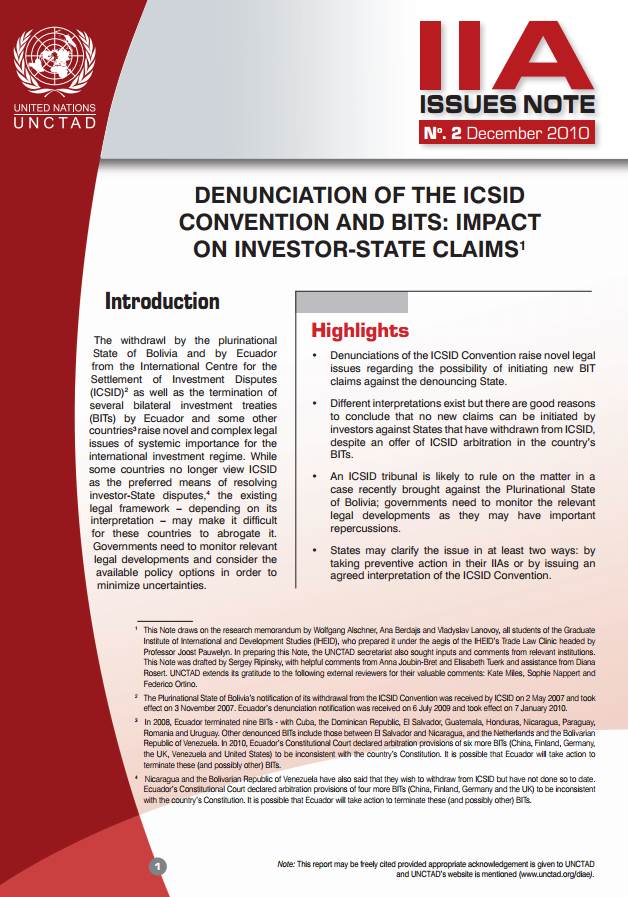IIA Issues Note: Denunciation of the ICSID convention and BITS
The withdrawal by the plurinational State of Bolivia and by Ecuador from the International Centre for the Settlement of Investment Disputes (ICSID) as well as the termination of several BITs by Ecuador and some other countries raise novel and complex legal issues of systemic importance for the international investment regime. While some countries no longer view ICSID as the preferred means of resolving investor-State disputes the existing legal framework – depending on its interpretation – may make it difficult for these countries to abrogate it. Governments need to monitor relevant legal developments and consider the available policy options in order to minimize uncertainties.
This UNCTAD IIA Issues Note looks into the questions that arise in connection with the denunciation of the ICSID Convention and with the termination of BITs.
The Convention’s provisions on denunciation leave room for contradictory interpretations as to whether the denouncing State remains bound by the Convention only in relation to disputes initiated before the denunciation, or also in relation to future disputes as long as the State’s consent to ICSID arbitration continues to exist in that country’s BITs. This latter reading effectively means that for a State to prevent future ICSID claims, it must not only terminate the ICSID Convention but also separately terminate all of its BITs that contain an ICSID arbitration option. Moreover, under this interpretation, exposure to ICSID proceedings will persist as long as the terminated BITs retain their force due to the “survival clauses”, i.e. up to 20 years after the termination. The solution to this interpretative puzzle will have far-reaching consequences for the system of international investment dispute settlement.
















